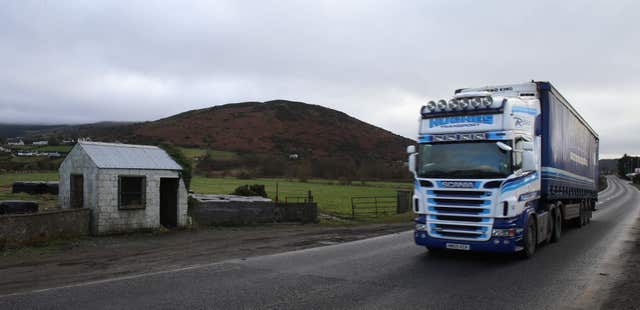What is a customs union and why does it matter?
Arrangements for customs are at the heart of talks about the future relationship between the UK and the European Union.

Any compromise Brexit deal between the Government and Labour is likely to feature UK involvement in some sort of customs union with the EU. But what is a customs union and why does it matter?
What is a customs union?
A customs union is a group of countries which abolish import tariffs and quotas on goods traded amongst them. Members of the union commit to observe a common external tariff, so that goods coming from outside the area pay the same duties, regardless of where they enter the bloc.
What are tariffs and why are they charged?
Tariffs are fees charged on imports. They are generally levied in order to protect domestic producers from cheap imports, often from areas of the world where labour costs are lower. If an imported good is subject to a tariff, it will be more expensive for consumers to buy, making home-grown products more competitive in the market. Tariffs can be used to prevent “dumping” of commodities like steel at a low cost in cases of over-production.
Who is in the EU customs union?
The European customs union covers all EU members as well as Monaco and the UK territories of Jersey, Guernsey and the Isle of Man. The EU has customs union agreements with Andorra, San Marino and Turkey, whose deal excludes agricultural products.

What are the advantages of being in a customs union?
Membership reduces the cost and bureaucracy involved in transporting goods across borders within the union. This is particularly important in industries like motor manufacturing, where components and part-finished vehicles can cross borders multiple times before the final product is ready for sale. Members of customs unions also benefit from the additional clout of negotiating as part of a large bloc in trade talks with outside states.
What are the downsides of membership?
Members of a customs union are barred from negotiating their own bilateral free trade deals with countries elsewhere in the world. Any deals are negotiated as a bloc, meaning that particular sectors are not accorded the priority they might receive if an individual state was negotiating on its own behalf. Equally, a major trade deal covering the whole continent can be delayed or blocked because of objections from a single country or region.
How would customs union membership affect arrangements at borders?
A customs union does not eliminate border checks altogether, but it can streamline them and allow formalities to take place away from the actual border. Involvement in a customs union arrangement with the EU would be a large step towards resolving the tension over the proposed “backstop” for Northern Ireland.
How would leaving the customs union affect everyday life?
Leaving the customs union could push up the price of European-made goods for consumers. In March, the Government published a temporary schedule for a no-deal scenario, under which most goods would enjoy 0% tariffs, but there would be 12% charges on many items of clothing and 10.8% on cars – adding about £1,500 to a typical family hatchback.
In the longer term, it would allow the UK to forge its own free trade agreements with major economies like the US and China, which could result in lower prices in the shops, but would also challenge the viability of some domestic industries.
Where do the parties stand on customs union membership?
Prime Minister Theresa May laid down “red lines” for her Brexit negotiations which included the UK leaving the EU’s customs union. Many Conservatives regard the ability for the UK to strike its own free trade agreements as the biggest benefit of Brexit and regard customs union membership as anathema.
Labour states that, rather than remaining in the existing union, it would seek a “comprehensive and permanent” new EU/UK customs union, with a British say on any future trade deals negotiated by Brussels. Compromise on this issue may be the key to finding a consensus deal in ongoing talks between the Government and the official opposition.
As opponents of EU withdrawal, both the Scottish National Party and the Liberal Democrats want the UK to remain full members of the customs union.





